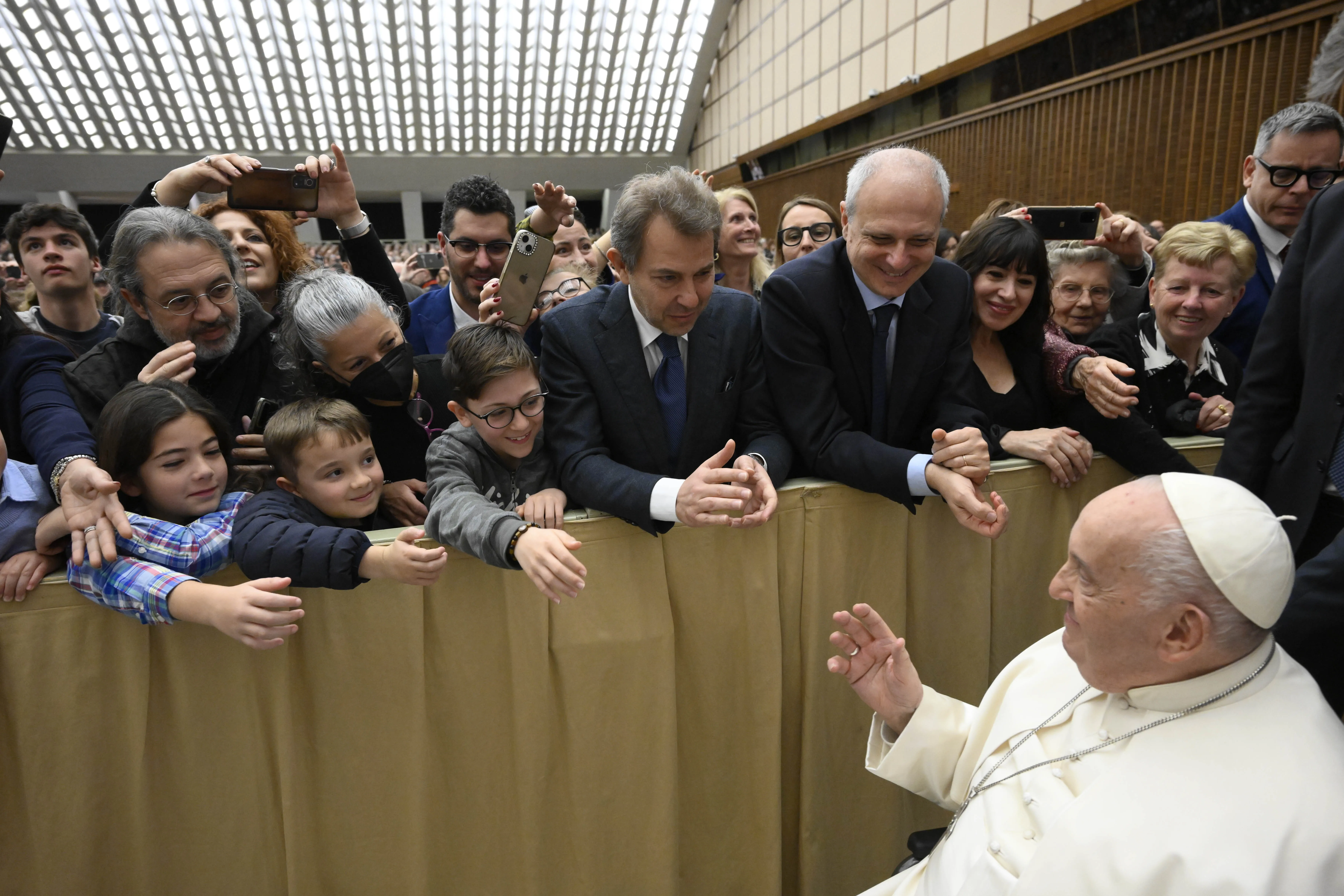Vatican City, 23 March, 2024 / 8:00 pm (ACI Africa).
Pope Francis on Saturday spoke on the important role public broadcasting plays in the transmission of information, serving the common good, and as an instrument to fight the spread of “fake news.”
“Your work is intended above all to be a response to the needs of the citizens, in a spirit of universal openness, with action capable of extending throughout the territory without becoming localist, respecting and promoting the dignity of each person,” the pope said in a Saturday morning address to the managers, journalists, and staff of RAI, Italy’s national public broadcasting company.
The 87-year-old pontiff seemed to be in good spirits as he delivered the nearly 10-minute-long address. In the last month, the pope has relied on aides to deliver his Wednesday general audience and speeches as he recovered from lingering flu symptoms.
“Once upon a time the popes used the gestatorial chair,” he said, alluding to the ceremonial throne on which a pope would be borne aloft. “Today things have moved on and I use this, which is very practical,” the pope quipped, pointing to the wheelchair that he has used since 2022 to move around.
During this address, the pope emphasized that the media’s mission of service to the public good is underscored by “seeking and promoting the truth.” Francis pointed to the imperative of combating the spread of viral misinformation, or “fake news,” and “the devious plans of those who seek to influence public opinion in an ideological manner, lying and disintegrating the social fabric.”







